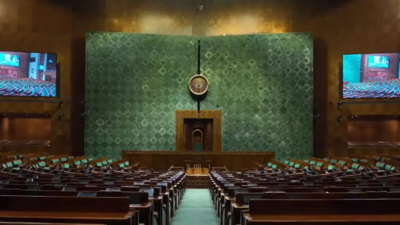
NEW DELHI: With a key parliamentary panel preparing to nudge Centre to “correct” the “flawed” implementation of “creamy layer” for OBCs in certain categories, the focus is set to fall on protracted absence of “equivalence of posts” which is at the root of the controversy.
Sources said the panel on OBC welfare is likely to push government to ensure “equivalence” across its institutions. “Equivalence of posts” refers to categorising posts in PSUs, banks, universities, etc, as Group A, B, C, D, like in the government.
BJP government had in 2017 announced with much fanfare that “equivalence” will be established across government departments and bodies, pending since 1993. But it is understood there is no news about “equivalence” having been done by most of the bodies, besides perennial disagreements about “equivalence” letters issued by states.
Also, while department of public enterprises (DPE) and department of financial services (DFS) did come out with “equivalence” for central PSUs and banks in 2017, the categorisation has been mired in controversies.
It now emerges that the parliamentary committeein a special report on “rationalisation of creamy layer in employment of OBCs” submitted in March 2019, had questioned “equivalence” done by the two key departments.
“The committee (members) have felt reverberations of dissatisfaction being experienced on account of ‘equivalence’ established both by DPE and DFS. The public opinion is, by and large extent, against it. They, therefore, recommend that equivalence set by DFS and DPE should be revisited in letter and spirit of expert committee report and DoPT OM of 1993,” it noted. However, the government later defended it in the action taken report (ATR) to the committee.
The government includes “salary” in computing “income” of candidates of PSU background, which is contrary to 1993 OM of DoPT that lays down that “income” will not include “salary” & “agricultural income”. The panel wants to reiterate that formula for calculating “income” for “creamy layer” cannot be changed for any category. Also, the panel is mulling a “model form” at the national level for determining “income” so that errors and subjectivity of implementation could be stubbed out.
In its 2019 report, the panel had termed the practice as discriminatory, even citing the judgements of Madras and Delhi HCs, that had slammed Centre over the issue.



















